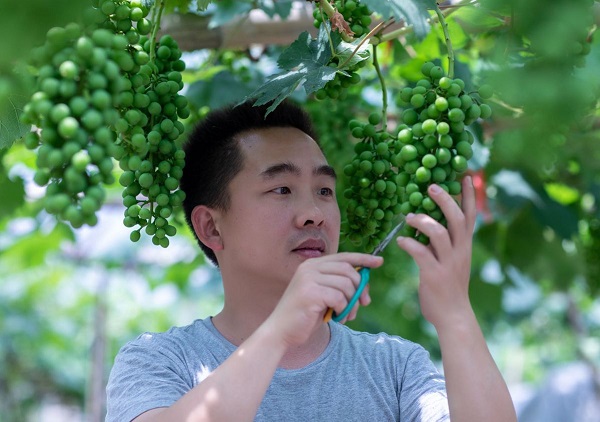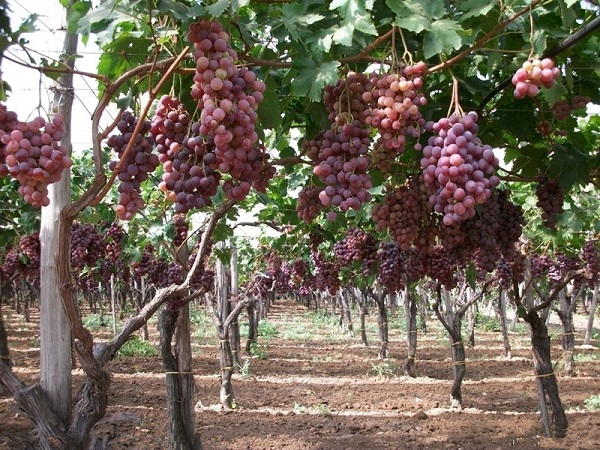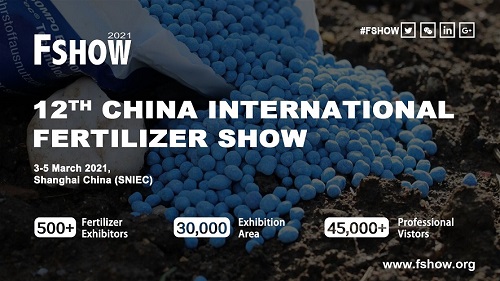
Exhibition time: 17-19 March, 2026 Shanghai, China
 中文
中文

Exhibition time: 17-19 March, 2026 Shanghai, China
 中文
中文

Liu Dexing thins grapes at a plantation in Xianghuan village of Fu'an city, Fujian province, in May. \
He helped local grape growers with techniques to harvest grapes for a better price.
The decision to close a profitable dumpling restaurant several years ago in the most expensive central business district in Fuzhou, Fujian province, was not easy for Lai Chunyan and her husband Liu Dexing.
"Our business was doing well because we'd already used the internet to promote our restaurant to receive more orders," Lai said.
She had worked on game development and operation at an internet company for several years after graduating university in computer science in 2009. Liu was a schoolmate majoring in mathematics.
But going back to Liu's hometown in Xianghuan village of Fu'an city seemed to be the only choice after their fathers got sick in succession and Lai was pregnant with their second child.
Fu'an, renowned as the grape city in southeastern China, produces 85,000 metric tons of grapes annually throughout 129 villages.
Nearly 120,000 people in Fu'an are engaged in grape-related industries.
However, the couple noticed that despite decades of development since 1984, there was not one single brand created for grapes produced in Fu'an, which meant that the grapes could only be sold at a relatively low price.
They decided to seize this opportunity by setting up a company to sell Fu'an grapes.
Liu, who is responsible for providing high-quality grapes to his wife, usually gets up at 3 am to supervise the grape picking by growers in orchards. Then, he goes to the factory to monitor the product packaging and shipment. The day only ends late at night after he has checked the bills with grape growers and arranged picking for the next day.
Lai, who works on packaging improvement and expanding marketing channels, tries to sell the grapes for a good price.
In 2017, they branded the best quality grapes as "Tengyu", which means "the vines speak".
Now, among the more than 10,000 cases of grapes they sell every day through online and offline channels, more than 2,000 cases are Tengyu grapes, whose retail price is 98 yuan ($14) per case.
"Our annual turnover in 2017 was about four million yuan. It doubled to more than eight million yuan in 2018. Last year, our annual turnover exceeded 17 million yuan," Liu said.

Now the grape growers in Xianghuan are encouraged to adopt measures such as yield management and avoiding the use of chemical fertilizers, to increase their output of high quality grapes that can be branded as Tengyu.
In July, their company sold the first batch of 1,152 cases of Tengyu grapes to Canada.
Next, the couple plans to export their grapes to more countries such as Singapore and Thailand.
Meanwhile, some 150 kilometers from Xianghuan, Fujian's Longtan village, which once had only about 200 residents, is attracting people from cities across the country to settle down as new villagers, contributing their wisdom and resources to rural rejuvenation. Jiang Silin is one of them.
Jiang has been working on rural planning and organic agriculture since 2014 after graduating from Fujian Agriculture and Forestry University. During an inspection tour to Longtan in 2018, he found out that the village is almost his dream village.
Longtan, which was rejuvenated through a project launched by local authorities in 2017 to promote cultural and creative industries, has witnessed an influx of new arrivals in recent years, most of them with university degrees.
Now Jiang and his girlfriend live in a renovated old house rented from a villager with a 15-year lease and run a small farm of 0.2 hectares.
"By growing organic rice and vegetables ourselves, we want to share with people in cities this new lifestyle in the village through our words and videos on social media so that more and more people will be interested in and even purchase Longtan's agricultural products," Jiang said.
Jiang hopes that the success of their small farm will prove to local villagers that organic agriculture is workable even though it is still not popular in villages.
"I'm sure that it's not a difficult thing for them to earn 10,000 yuan annually once they successfully shift to organic agriculture," he said.
From CHINA DAILY
